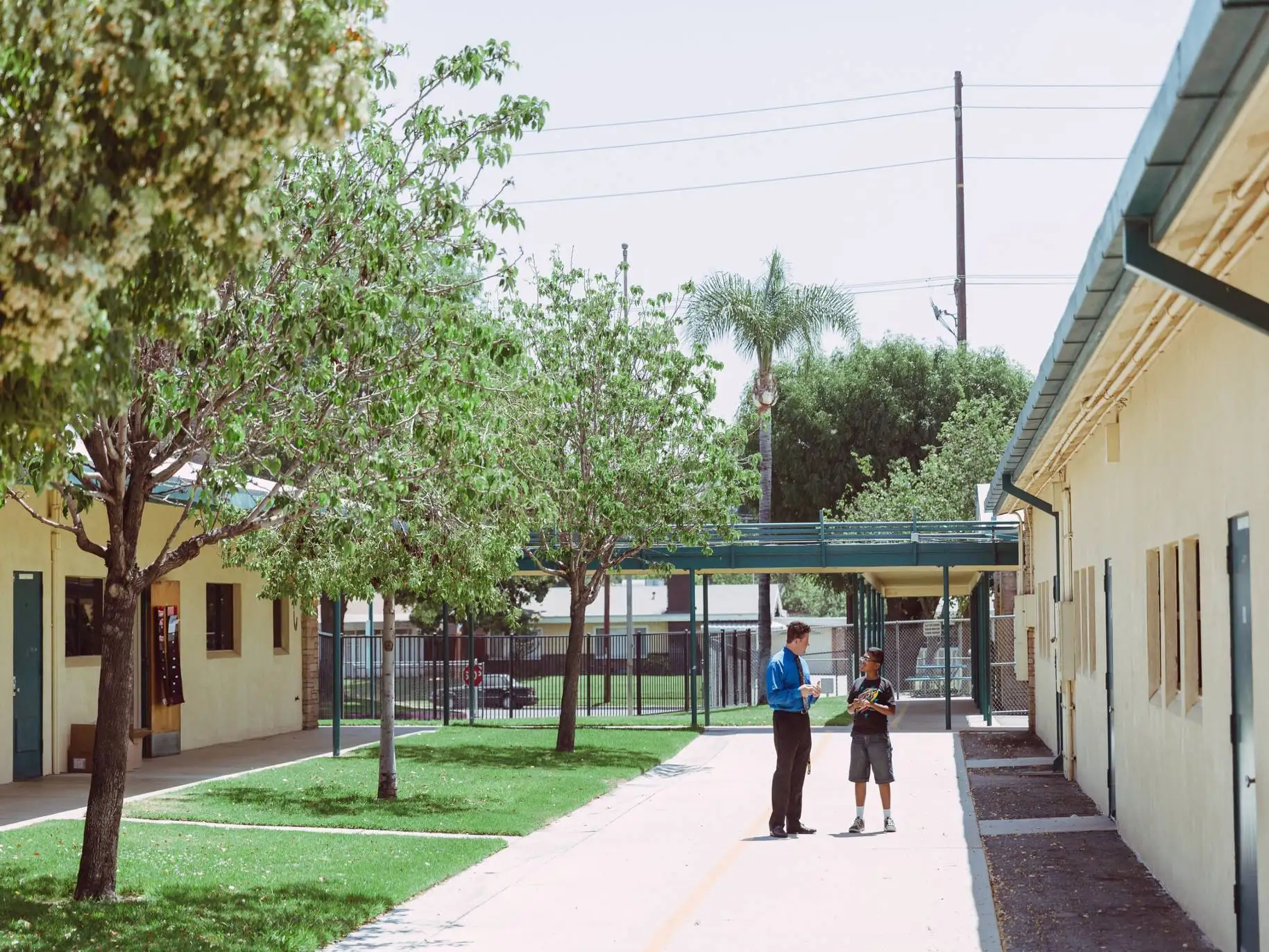- Home
- >
- APU Articles
- >
- News Article
Adding a Behavior Analyst Certification to Your Master’s Degree
July 22, 2025 | Category Behavioral Sciences | Written By Jacqueline Guerrero

According to the Behavior Analyst Certification Board (BACB), the demand for behavior analysts in California has increased by 62 percent in the past 15 years. A similar trend is taking place across America, leading to a shortage of behavior analysts and a growing population of people who could benefit from their services. Azusa Pacific University provides School Psychology, EdS, with embedded Educational Psychology, MAEd, and School Psychology Credential students with the opportunity to concurrently earn their master’s along with an applied behavior analysis (ABA) certification in just two years.
Behavior analysts are professionals with a specialization in examining human behavior from the lens of environmental variables. They often work with autistic individuals and those with developmental challenges, traumatic brain injuries, anxiety, and ADHD among other developmental differences. Their therapeutic methods are both theoretical and pragmatic in nature. Behavior analysts administer a variety of assessments to better understand their clients before creating a behavior intervention plan and subsequent skill building. Behavior analysts are needed in a variety of settings including the home, schools, clinics, community programs, and hospitals.
ABA has been considered the gold-standard of therapeutic approaches for autism, but the scientifically based field has recently become recognized as effective across many additional populations. ABA therapy has also become more accessible with legislative support and insurance companies covering the cost of services.
At APU, school psychology students can earn their ABA certification by completing seven additional courses as their specialization in their chosen psychology track. The program has a variety of pathways, each with different certification and specialization credentials that students are able to add to their resumés immediately after graduation. While they’re completing their traditional classes and ABA classes, the program also gives students the opportunity to get hands-on experience through field work. Students find a BACB approved organization in the community to work at and learn from professionals in the field. Through field work, students can begin earning the necessary experience hours needed for the certification.
APU’s intentionally challenging approach to the curriculum of the ABA program cultivates strong candidates for jobs in the field after graduation. Program director Crystal Alstot ’04, PsyD, said that the pragmatic, proactive rigor of the courses prepares students for high intensity cases early in their careers.
Our students stand out among the competition because they have backgrounds in behavioral theories and techniques. Whether they’re applying for practicum or internships, our students stand out against other applicants because of their behavior analytic expertise on top of their school psychology skill set.Crystal Alstot '04, PsyD
Before students graduate, they are able to properly assess and create appropriate programming to address a variety of skill deficits and behavioral difficulties. The program combines philosophical and theoretical knowledge with hands-on tools and experience to prepare them for the field. “At its essence, the program is hands-on,” Alstot said. “Its practical approach equips future BCBAs to address a variety of student learning and behavioral challenges.” The ABA program is also unique due to its roots in culturally responsive practices. A trauma informed and compassionate approach allows students to incorporate cultural humility into their practice and help a diverse population of clients.
Students interested in pursuing a career in school psychology with an emphasis in ABA who have a passion for learning and helping others would be a great fit for the ABA specialization program. Its combination of academically rigorous curriculum with hands-on field work prepares students for behavior analyst work post-graduation, a role that is becoming increasingly high in demand and seen as an effective approach to a variety of developmental challenges.